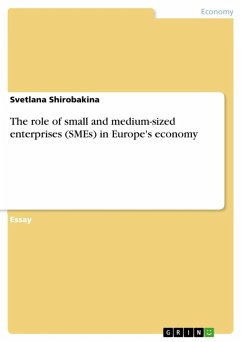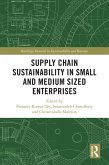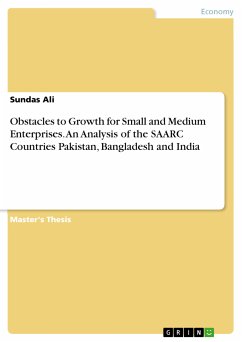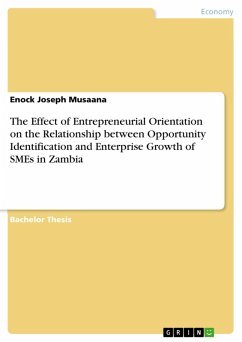Essay from the year 2004 in the subject Business economics - Miscellaneous, grade: 1,3, University of Lincoln, course: B.A. European Business, language: English, abstract: The Lisbon European Council of March 2000 set the European Union a new strategic objective for the coming years:to become the most competitive and dynamic knowledge-based economy in the world, capable of sustained economic growth with more and better jobs and greater social cohesion. It is considered that Europe's competitiveness and economic progress is strong dependent on its small and medium-sized enterprises, which are the key-source for job creating as well as for searching for new business ideas and innovative solutions, its main driver for entrepreneurship. For this reason, the European Council endorsed the "think small first" principle as one way to progress towards the Lisbon objectives. The idea of the small business has captured the imagination of the public and politicians over past years. They agree in the point that to meet the challenge of new integrated Europe requires a better business environment within the Internal Market, including the lightest possible administrative and regulatory burdens for small businesses and a better access to finance resources as well as creating of simple and effective legislation. It also requires a revolution in attitudes to entrepreneurship and to risk-taking processes, which will allow viewing failure as a part of experience, as an "opportunity to learn" from mistakes. They also emphasise the fact that small enterprises are normally more sensitive to changes in the business environment than large firms. They are the first to suffer if weighed down with excessive bureaucracy and creating new administrative burdens. And they are the first to flourish from initiatives such as decrease in taxation rate and promotion. My essay aims to answer the question to what extent the EU's main market integration initiatives address the needs of SME's and what should be done on the way to developing strong, competitive SMEs which would use all benefits from the Single European Market. It is important to define what we mean by SMEs before proceeding to answer these questions. For the purpose of this essay, SMEs are defined as non-subsidiary, independent firms, which employ less than 250 employees. We have to take into account the fact that this number may vary across national statistical systems. [...]
Dieser Download kann aus rechtlichen Gründen nur mit Rechnungsadresse in A, B, BG, CY, CZ, D, DK, EW, E, FIN, F, GR, HR, H, IRL, I, LT, L, LR, M, NL, PL, P, R, S, SLO, SK ausgeliefert werden.









